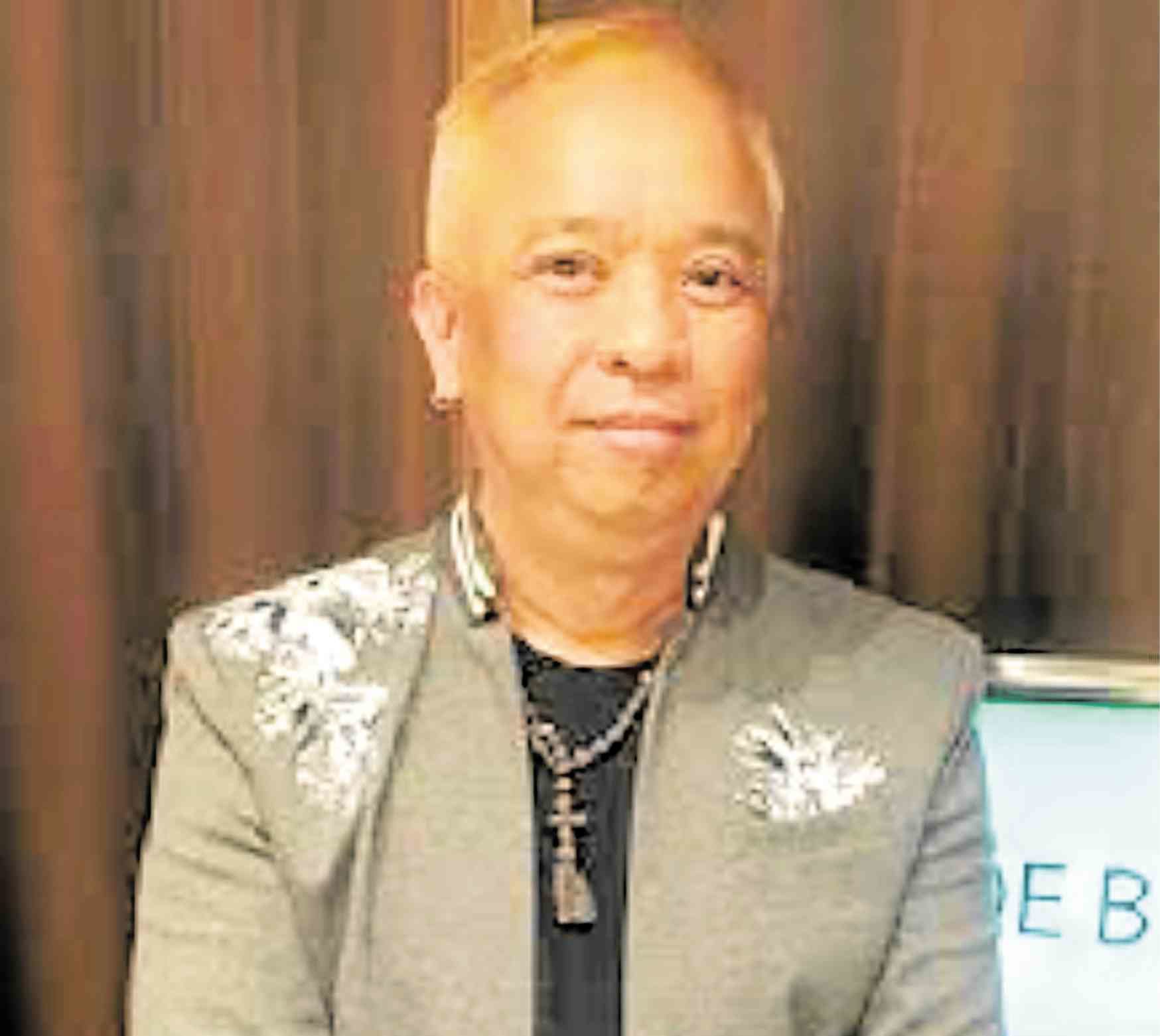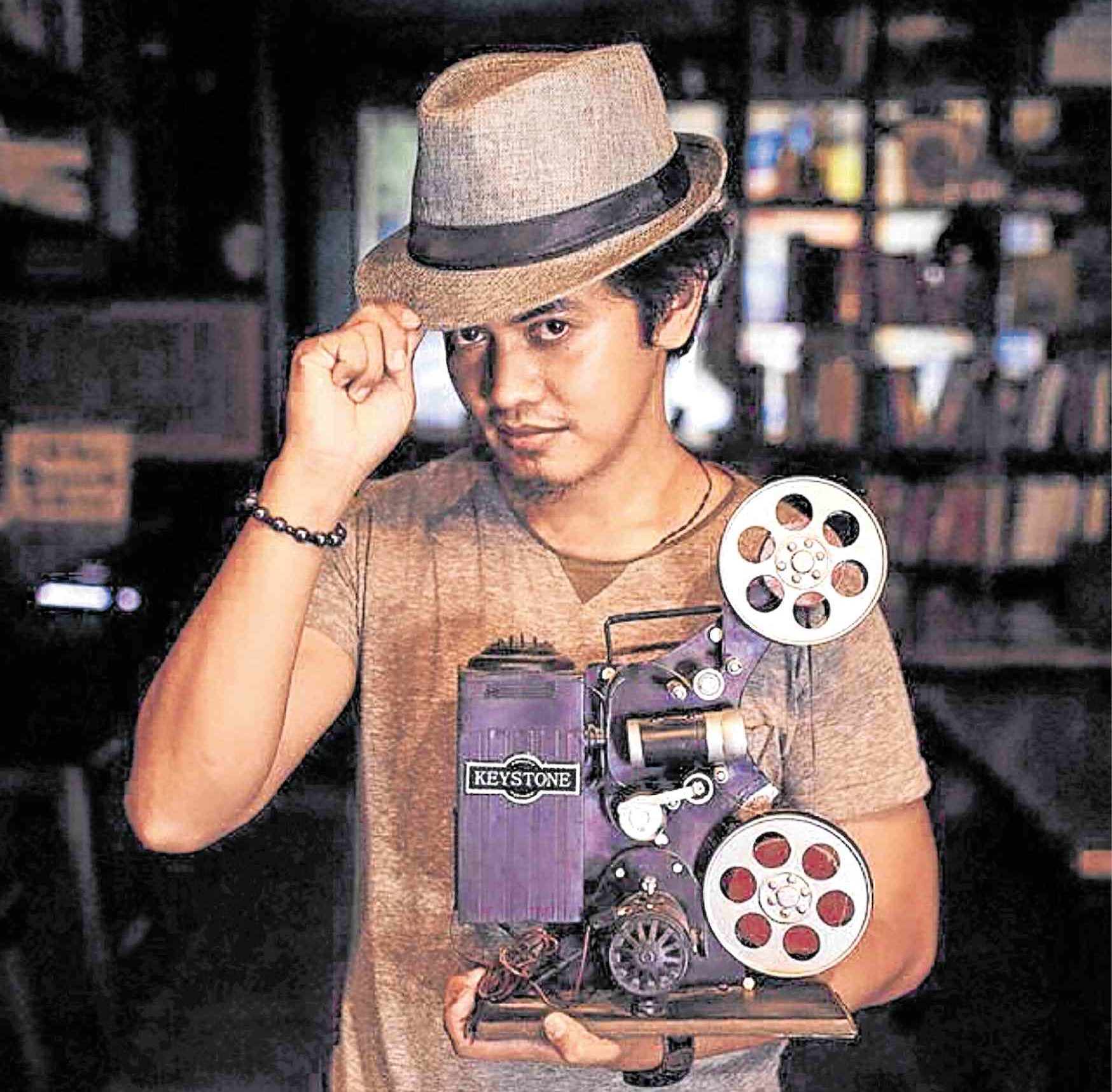Significant triumphs mark Inquirer Indie Bravo! Awards’ 10-year milestone
(First of two parts)
Another year, another batch of honorees. But this year’s edition of the Inquirer Indie Bravo! Awards is particularly special because it doesn’t merely pay tribute to the country’s ever-growing number of film practitioners bringing pride and honor to the Philippines; it also marks the 10th year since the Inquirer began chronicling their triumphs on the international stage.
Inquirer Entertainment renews its commitment to encourage the country’s film artists—from directors and actors to the rest of the production team—as well as generate engaged interest in their work.
Indie Bravo’s decade-long support for the indie community has had its share of naysayers in the age of social media, but its movers and shakers, currently made up of project director Marinel Cruz, Jenny Santiago, Allan Policarpio, Belle Bondoc-Roberto, regular Inquirer Entertainment contributor Tcel Maramag and this writer, continue to reiterate that the annual fete is more a celebration than a competition.
The notion that Indie Bravo seeks affirmation from foreigners is misplaced and fallacious, because more than just celebrating the honorees’ triumphs, it seeks to recognize them for telling—and spreading—the Filipino story at film festivals around the world.
The 10th edition of the Inquirer Indie Bravo! Awards, dubbed “Para sa Sine, Para sa Sining: Isang Pagpupugay,” was presented by the Philippine Daily Inquirer and Ayala Land on Nov. 26 at the PowerMac Center Spotlight in Ayala Malls Circuit.
Here are this year’s awardees. Bravo!
DIRECTORS
IAR LIONEL ARONDAING
Young filmmaker Iar Lionel Arondaing already won an international award for a short film he did while still a student of Multimedia Arts in De La Salle-College of Saint Benilde.
When he clinched another trophy, he said in Filipino, “When we win an international award, people recognize the importance of the art of filmmaking. And through filmmaking, we can show the audience our contributions to the country and the film industry.”
Arondaing won the Special Jury Prize at the 18th Baikal International Film Festival in Russia for the film “Musmos na Sumibol sa Gubat ng Digma.” It tackles the rido (clan feud), which is common among Islamic groups in Mindanao.
Arondaing said he made this film to raise awareness about the matter.
“People who are involved in such feud would resort to violence to solve and get justice for the crime committed to their family members,” he said. “Nagpapatayan, gantihan hanggang maubos.”
Poverty, he said, is one of the main reasons of the conflict.
Arondaing said his film focuses on the effects of this crisis on kids in Mindanao and how they deal with it.
News about his win came as a surprise. He admitted he did not expect to win because the competition was tough and a lot of good films were nominated.
“The jury mentioned that they chose the film because of the message we were trying to convey,” Arondaing enthused. —BELLE BONDOC-ROBERTO
CARLO ENCISO CATU
They helped me be seen in this very competitive industry,” said Carlo Enciso Catu, who directed “Kung Paano Hinihintay ang Dapithapon,” of how important winning awards is for him.
“I always say that awards are a bonus to my job as a filmmaker, that they’re not the ultimate reason why I tell stories or why I make films, but I won’t deny the importance of the awards I had in my career,” added Catu.
“Kung Paano Hinihintay ang Dapithapon” won the Prix du Public (Audience Choice Award) at the 25th Vesoul International Film Festival of Asian Cinema in France and the Special Jury Prize at the 39th Oporto-Fantasporto International Film Festival in Portugal, where his lead actor Dante Rivero also copped the best actor trophy.
“Awards put me in the spotlight,” he pointed out. “Yes, I am always grateful, thrilled and excited whenever I get an award or recognition. It is as if getting a pat on the back for a job well done.”
The film is about an unmarried couple, Teresa (Perla Bautista) and Celso (Menggie Cobarrubias), deciding to attend to the needs of Teresa’s estranged husband Benedicto (Dante) in the remaining days of his life.
“Dapithapon” tells of love, companionship and forgiveness. It is also about moving forward by revisiting the past, according to Catu.
Working on the film, the director said, had helped him realize that “I am braver than I thought I was.” By this, he means he has learned “the art of letting go. As cheesy as it may sound, it takes a lot of maturity to accept that there are things better left unsaid.”
Catu is currently working on his first iWant series, titled “My Single Lady” and another full-length feature film, titled “Purple Sun,” which will be shot in Japan early next year. He is also developing another project to be called “Labandera,” which recently won a development grant from Ten17P Productions.—MARINEL R. CRUZ
ZIG DULAY
More than winning awards, being able to share stories that are “uniquely Filipino” is what drives Zig Dulay to make movies.
“Your work being seen by international audiences and being appreciated for your craft is such a special feeling,” Dulay said in a past interview. “Winning encourages me to make more meaningful and significant films … But being part of festivals is already more than enough.”
Two years after “Bagahe” was released, the acclaimed social drama continues to collect awards in international film festivals—the latest being the Critics Special Mention and People’s Choice Award at the 15th Festival International du Film Transsaharien in Zagora, Morocco.
While he has been doing a lot of television work for GMA 7 recently, Dulay makes sure to always come back to his first love—doing socially relevant films.
“That’s where I was able to find my soul, which I now take with me wherever I go and whatever I do. So, I hope to fulfill my personal pledge to continue doing movies,” he said.—ALLAN POLICARPIO
RAYMUND RIBAY GUTIERREZ
The country’s biggest win this year was from director Raymund Ribay Gutierrez. His first full-length feature film, “Verdict,” got a Special Jury Prize from the prestigious 76th Venice International Film Festival in Italy.
It’s about an abused and battered wife seeking justice. Joy (Max Eigenmann) stands up against her abusive and alcoholic husband Dante (the late Kristofer King), laying bare the country’s tumultuous justice system.
Meanwhile, Gutierrez’s short film “Judgment” also won the Golden Remi for dramatic short film at the 52nd Worldfest-Houston International Film Festival. It tackles domestic violence, inspired by the director’s concern about spousal abuse, which he considers “rampant” and “not seriously addressed.”
A protégé of Cannes-winning director Brillante Ma Mendoza, Gutierrez said in a previous interview, “Every award is important because it proves that I’ve done a good job, but it should not be the purpose of doing a film.”
He added: “Awards are important only because it can get you more opportunities to continue doing what you love doing.”
Gutierrez is also grateful to his talented team who’s been with him since the start of his career. He stressed, “When I won in Venice, I felt very thankful and honored that all our hard work and prayers had paid off.”—BELLE BONDOC-ROBERTO
LOUIE IGNACIO
Louie Ignacio has lost track of the number of international awards he has won over the years. But he knows exactly how many Guyitos he owns.
“This is my fourth!” said the television and film director, who was honored at this year’s Indie Bravo! for two overseas victories.
Ignacio’s short film “Ngiti ng Nazareno” received the Jury Prize at the 2019 Innuendo International Film Festival in Milan, Italy. His full-length drama, “School Service,” meanwhile, won the Orient Express Special Jury Prize at the 39th Oporto-Fantasporto International Film Festival in Porto, Portugal.
“Every time I win, I still get excited because No. 1—and this is true—we get to have another Indie Bravo! trophy the following year. That’s really it!” he said.
“Also, one of the first things that comes to mind is our country. I’m representing the Philippines. I’m a proud Pinoy filmmaker,” he related. “That makes our heart full.”
That said, it would be better, Ignacio said, if Filipino viewers can show the same kind of appreciation their foreign counterparts give Filipino films. “Our wish is for our fellow Filipinos to watch our work; I hope they watch them when they get shown here in the Philippines,” Ignacio said.
“We’re eager to win abroad, because we think it will help us get more attention here,” he added.—ALLAN POLICARPIO
JOEL LAMANGAN
Multiawarded director Joel Lamangan enjoys receiving awards so much that he gets sad if he doesn’t get one in a year.
“Each time I receive an award, it always feels like the first time,” Lamangan told the Inquirer. “An award is always nice to have because it means people recognize your work as a filmmaker in that particular year.”
This year, Lamangan got three trophies for his film “Rainbows’ Sunset”: Special Jury Prize, best story innovation and best actor for his stars—all from the 52nd Worldfest-Houston International Film Festival in Texas, USA.
“Like me, you’re just putting too much pressure on yourself if you feel you have to win awards every single year. You don’t always get to make projects that are worthy of receiving awards,” he explained. “Nakakaganda lang ng feeling because awards are concrete signs that people recognize your work.”
Joel also said he feels extremely happy if other members of his production team get recognized, not just him. “I wouldn’t be able to finish that particular project without them, anyway,” he explained.—MARINEL R. CRUZ
BRILLANTE MA MENDOZA
Being considered a master filmmaker both here and abroad, multiawarded director Brillante Ma Mendoza said he is used to being a festival jury member on one side and the one being judged on the other.
This year, he got another Indie Bravo! award for winning the Special Jury Prize for “Alpha: The Right to Kill” both at the 15th Bucharest International Film Festival in Romania and at the 2019 Beaune International Thriller Film Festival in France.
“Masaya kasi less ang trabaho,” said Mendoza on being a festival contender rather than being part of the jury. “I just came from Turkey, where I was also jury president, and work is always much harder. I have to be very critical all the time.”
He added: “If you’re a filmmaker, and not a jury member, being one should be your only concern. You also want to see or listen to the reaction of your audience,” he pointed out. “I find it fulfilling when I learn that people come to watch my work and that they know my filmography. As a competing filmmaker, you just stay in one corner and enjoy your audience’s reaction. I like attending Q&A sessions and answering all those intelligent questions and observations. You don’t get to feel this if you’re part of the jury.”
Meanwhile, he said being a jury member “validates your being an artist. This means people recognize your stature as a filmmaker. As the jury president, it’s always overwhelming to be leading a team of talented artists from different parts of the world. The recognition isn’t just for you, but also for the country you represent.”—MARINELR.CRUZ
PJ RAVAL
Making “Call Her Ganda” was truly “life-changing” as far as its director PJ Raval is concerned.
“It has inspired me to focus on sharing more stories from the Filipino experience both in the Philippines and abroad,” he told Inquirer Entertainment.
“Call Her Ganda” is based on the murder of Jennifer Laude, a 26-year-old trans woman from Olongapo. This year, it won the Audience Choice Award at the Seattle Asian American Film Festival 2019 in Washington, United States. This has also earned an Indie Bravo! trophy for Raval.
“Not only is it a huge honor to be receiving an Indie Bravo! award alongside a truly amazing group of talented national artists, but it’s also an honor to be recognized by the Inquirer who remains an essential Philippine news source and cultural touchstone,” the director said. “I am humbled and deeply appreciative, so yes, I do get excited winning an award!”
“Call Her Ganda” shows how three women are intimately invested on the case of Jennifer. First is an activist lawyer (Virgie Suarez), a transgender journalist (Meredith Talusan) and Jennifer’s mother (Julita “Nanay” Laude).
When asked what film he would be doing next, Raval said: “I’m keeping quiet for now about my new work, but you can count on some upcoming work that will highlight the overlooked stories from the Filipino and LGBTQ+ communities!”—MARINEL R. CRUZ
ARJANMAR REBETA
Winning an award serves as a big inspiration for Arjanmar Rebeta to pursue his craft.
“Just imagine being recognized together with award-winning veteran filmmakers. It inspires me to continue pursuing my dream,” said Rebeta.
His sociopolitical “Palabas —A Country in Moving Pictures” won the Signs Award (Short Film section) at the 17th International Festival Signs of the Night in Germany.
For Rebeta, making this film required courage because it explores sensitive issues about human rights violations. The film showcases the current situation in the country and for him, “every citizen is an active image of the country.”
But while Rebeta is proud to represent the country abroad and for reaping international recognition for his short films, he confided that receiving his first Indie Bravo! award gave him “more fulfillment as it validates his hard work and efforts” in creating films for fellow Filipinos.—BELLE BONDOC-ROBERTO
CHITO ROÑO
“To be honest, I still do, even just a little,” said director Chito Roño when asked whether or not he still feels excited whenever he receives an award.
Roño is an Indie Bravo! honoree this year for the film “Signal Rock,” which won best film award at the 2019 Asean International Film Festival and Awards in Malaysia and best screenplay honor at the 2019 Dhaka International Film Festival in Bangladesh.
“I like winning awards because I get to inspire people through it,” he told Inquirer Entertainment. “I was like that when I was a young filmmaker. I got inspired when Lino Brocka and the other filmmakers I consider my idols also received trophies. Now that I’m older, I know that there are a lot of young directors out there and that they look up to me for inspiration.”
For those who get recognized because of his films—like “Signal Rock” lead actor Christian Bables and screenwriter Rody Vera—Roño said he would always be happy for them.
“They make me proud. They won because of a project that I’m also very much a part of,” Roño stressed.
“Signal Rock” centers on Intoy (Bables), who assumed the role of taking care of his parents when his sister decided to work overseas. Since he lives in a remote area in Samar, the only way he could contact his sister is by going up the strange rock formation on the island.
Roño said he auditioned many actors for the role of Intoy, but settled for Bables because “he performed with sincerity; and although my vision of how Intoy looks like doesn’t match his appearance at all, I saw the intensity in Christian’s face. I liked what I saw.”
Roño added that “Christian is very charming as an actor. Intoy needs to charm everybody in the community in order to get their assistance. Of course, Christian is a good actor, but he also has natural charm and doesn’t need to act that.”—MARINEL R. CRUZ
MATTHEW ROSEN
For Matthew Rosen, crafting the acclaimed historical biopic “Quezon’s Game” is his way of saying thank you to the Filipinos.
“The film is about everything I have learned in the 35 years I have lived here. One of the reasons I did the film was I wanted to share the culture here with the rest of the world. It’s an important thing to allow Filipinos to be proud of who they are,” he said. “I think the movie gave me the opportunity to do just that.”
It’s the first Indie Bravo! award for the veteran filmmaker, who took home four trophies at the 52nd WorldFest Remi Awards Gala in Houston, Texas, for “Quezon’s Game”: best international feature; the Special Jury Award; and the Golden Remi for best art direction and best director.
“It’s wonderful. I feel very privileged to be honored by the Inquirer. ‘Quezon’s Game’ is a Filipino film about the Philippines, so it’s nice to be recognized here,” he said.
While he already has several awards under his belt, winning new ones never gets old.
“I still get excited for every single one. It’s not really the first thing you think about when you start working on a film— it’s just a bonus. And when you start winning, you feel that your work is being appreciated,” Rosen said.
“Yes, you like your work. But will others feel the same? It’s always a gamble. An award affirms that it’s not just you.”—ALLAN POLICARPIO
DAN VILLEGAS
Director Dan Villegas admitted he was a nervous wreck during the first two shooting days of “Hintayan ng Langit” because he was working with the late veteran actor Eddie Garcia.
“I realized later that I shouldn’t be feeling nervous, that he wouldn’t want that. He was expecting me to give my 100 percent because that’s what he had been giving the whole time,” Villegas explained. “Manoy was something else.”
The story revolves around Lisang (Gina Pareño), who has overstayed in her waiting room in purgatory, occasionally causing other souls trouble for her own entertainment. But today, her waiting ends. She is finally set to cross over and her room is to be leased to a new tenant: Manolo (Garcia), her newly deceased ex-boyfriend.
“I shot ‘Hintayan ng Langit’ purely trusting the instincts of my staff and crew. It was one of those projects that I leaned heavily on them, and I was very happy with the outcome,” Villegas told the Inquirer.
The film won the Golden Samaritan Lion award at the 2019 International Film Festival: East & West, Classics and Avant Garde in Orenburg, Russia.
Asked how important receiving an award for him is, Villegas said he has now reached a point in his career wherein he was “done with the ooh-I-want-an-award phase … Though awards give an ego boost, I think the best to way to appreciate it is how my mentor, (the late) Marilou Diaz-Abaya, put it: ‘Enjoy them for a few minutes, then put them on a dresser.’”
He added: “Though I don’t mind getting some, I do think they are [only] important for two things: For the parents, and for raising one’s talent fee.”
Villegas said he is currently on “producing mode” under the production firm called Project 8 corner San Joaquin Projects. The team is wrapping up “Fan Girl,” with his girlfriend, Antoinette Jadaone, as director. They are also preparing to release Rayn Brizuela’s comedy flick “Mang Jose,” featuring Janno Gibbs.—MARINEL R. CRUZ
ACTORS
ANGELI BAYANI
Award-winning Angeli Bayani bagged the best actress trophy at the 15th Zagora International Trans-Sahara Film Festival in Morocco for her luminary portrayal of Mercy, a woman under investigation for allegedly abandoning her child in an airplane trash bin in Zig Dulay’s “Bagahe.”
In a social media post, she thanked Dulay for the project: “He has brought home so many recognitions from different parts of the world for ‘Bagahe,’ for fearlessly telling a story that’s important and worthwhile. I am grateful to him for allowing me to join him on this journey.”
Bayani is known for her roles in indie films, notably Lav Diaz’s “Melancholia” and “Norte, the End of History,” for which she won the 2014 Gawad Urian Award for best actress.
She also starred in the TV shows, “Food Lore” and “Let the Love Begin.”—BELLE BONDOCROBERTO
CRISEL CONSUNJI
When she auditioned for her role in Chan Oliver Siu-kuen’s “Still Human,” Crisel Consunji didn’t realize she would eventually accomplish something no other Filipino performer has done before. The homegrown, Hong Kong-based Filipino actress became the first Pinoy to win an acting trophy at the Hong Kong Film Awards (HKFA) for her portrayal of a nurse-turned-domestic helper in Hong Kong.
Consunji believes there’s more to acting than a believable performance. “I joined the film because I believed it would bring an empowering voice to many Filipino women,” she told Inquirer Entertainment. “Having been recognized by the HKFA meant that this goal came full circle. I am glad that the story resonated with the award-giving body. At the same time, I felt privileged to be recognized as a Filipino actress whose work they valued.”
What was going through her mind when she heard her name announced? “Fear,” she said. “I thought, ‘Oh my gosh, I actually have to deliver the trilingual speech I planned!’ (laughs). Kidding aside, I told myself to get myself together, because whatever I would be saying next would be heard by people from diverse communities, and I wanted to make those 30 seconds of attention count, by saying what I believe would be meaningful for people.”
Consunji played a teenage Little Red Riding Hood in “Into the Woods,” which we directed, before she began her “adventure” as a performer and educator in Hong Kong.
But her HKFA accolade was no fluke: Consunji also won best new actress at the 13th Hong Kong Film Directors’ Guild Awards this year.—RITO P. ASILO
AI-AI DELAS ALAS
While she’s primarily known for her blockbuster comedy movies, Ai-Ai delas Alas’ recent string of best actress wins for dramatic roles in indie films proves that there’s more to her than making people laugh.
“When I attend film festivals abroad and the audience finds out that I’m actually a comedian in our country, they clap and cheer for me even harder! It makes me very happy; it makes me feel I’m capable of going beyond what people expect of me,” she said.
Delas Alas’ latest triumph came at the Director’s Week section of the 39th Oporto International Film Festival —one of Portugal’s most prestigious. She was named best actress for her playing a wheelchair-bound beggar enmeshed with a child-trafficking syndicate in “School Service.”
This is the same role that won for her the best actress award at the 2018 Cinemalaya film festival.
“It’s validating and fulfilling. Knowing I have done something good inspires me to do more good projects or improve as an actress. I will do better next time,” she said, adding that winning awards is always exciting and something she has yet to get used to.
“When we go abroad, we bring Philippines with us. And so our wins become a source of pride for Filipinos, too,” Delas Alas pointed out. “But of course, it’s still different and special when you get recognized in your own country.”—ALLAN POLICARPIO
MAX EIGENMANN
For Max Eigenmann, who plays an emotionally and physically abused wife in “Verdict,” working on the Raymund Ribay Gutierrez film has taught her that “it is OK to ask for help and that doing so does not make you weak.”
In the film, Eigenmann plays Joy who decides to seek justice after she and her daughter becomes victims of domestic abuse.
“The film has taught me that standing up for ourselves and the people we love is a beautiful thing no matter the struggle that comes with it,” she declared.
For this movie, Eigenmann recently bagged the best actress honor at the 13th Asia Pacific Screen Awards in Brisbane, Australia.
She considers winning awards as “more of a gift— always unexpected and extremely appreciated. Receiving accolades for the work that I do will never ever fail to excite, surprise and truly make me happy.”
The actress said she likes that she gets to “share the award with my family, as well as with the people I work with. Making a film is extreme teamwork, after all.”
She is currently working on another film under the direction of Daniel Palacio, to be produced by Center Stage Productions, producer of “Verdict.” She will also be starting a new digital series, called “After Life,” with Cholo Laurel at the helm.—MARINEL R. CRUZ
INA RAYMUNDO
When she ran away with the best actress award at the 39th Oporto (Fantasporto) International Film Festival in Portugal this year for the film, “Kuya Wes,” Ina Raymundo proved she was more than just a pretty face and a sexy body.
“I am grateful and honored,” she told Inquirer Entertainment. “At first, it wouldn’t sink in. I couldn’t believe I won. I asked my manager many times if she was sure about it, maybe it was just fake news because I felt that my role as Erika is really very simple, nothing extraordinary. But that’s what the jury appreciated—very subtle acting.”
In “Kuya Wes,” Raymundo portrayed a conflicted housewife who catches the fancy of a timid clerk (Ogie Alcasid) at a remittance center.
“Maybe they felt something from me—the way I delivered my lines, my eyes probably, that’s what they were looking for,” she said.
She observed that when it comes to indie films, the acting is very different. Raymundo cited the performance of Jaclyn Jose in the movie, “Ma’ Rosa,” which won for Jose the best actress award in Cannes.
Raymundo said she found Jose’s acting in that film “really sakto lang, not over the top.”
In doing “Kuya Wes,” Raymundo enjoyed working with Alcasid. “It was fun. I used to work with him back in the ’90s, mostly in comedies, but this one is different, this is drama, and kinda dark.”
Raymundo became a household name because of her appearance in the 1990s beer commercial “Sabado Nights” and its 2017 remake. She also starred in the ABS-CBN teleseryes “La Luna Sangre” and “Ngayon at Kailanman.”
She took a break from show biz to focus on her family. “I was always pregnant. So for me, show biz was an on-and-off thing. It was a cycle, doing one teleserye, then getting pregnant again—but now that my youngest is 6 years old, I’ll be more visible.”
She dedicates her award to her five beautiful kids.—BELLE BONDOC-ROBERTO
(To be continued on Dec. 8)















